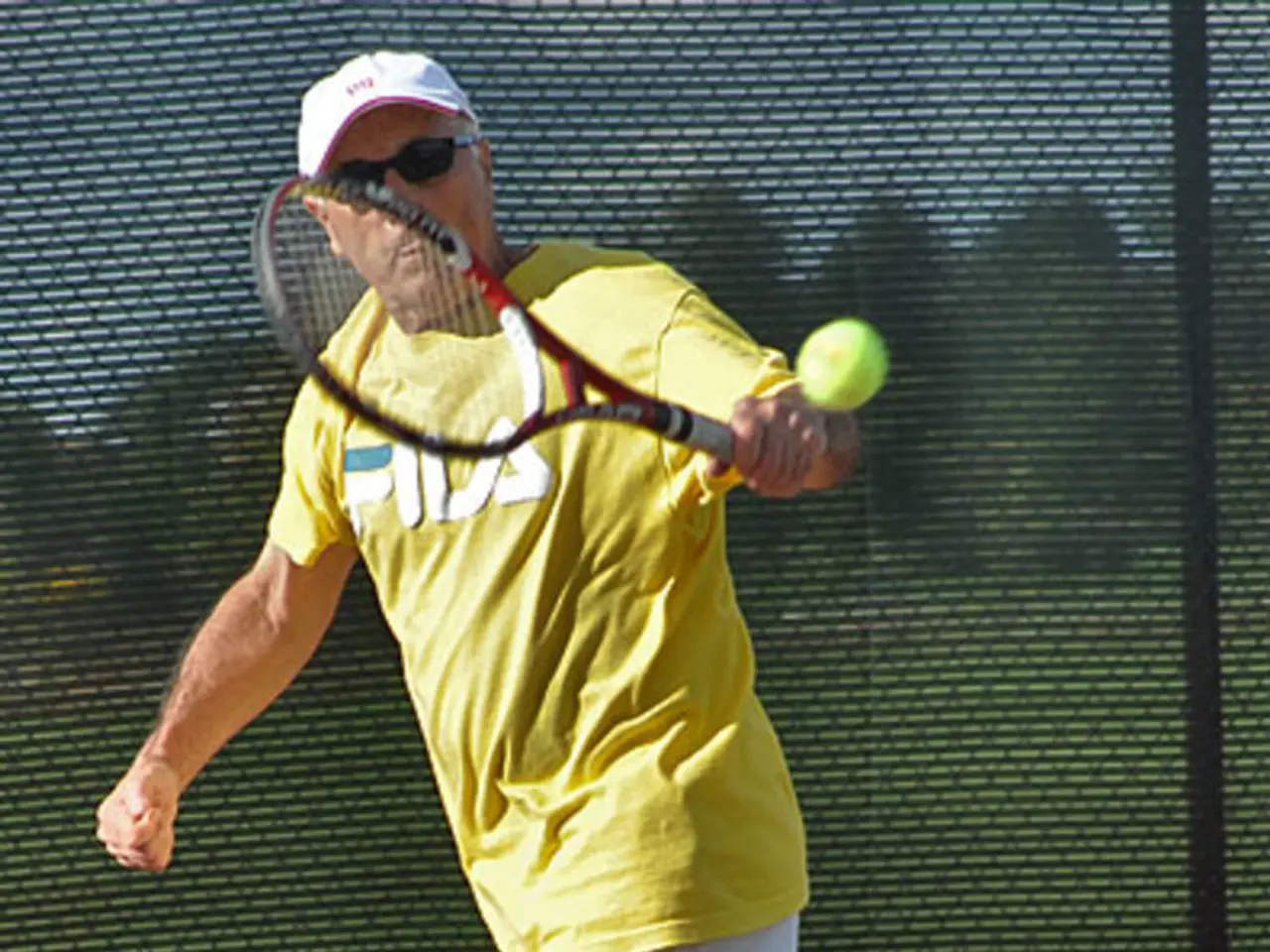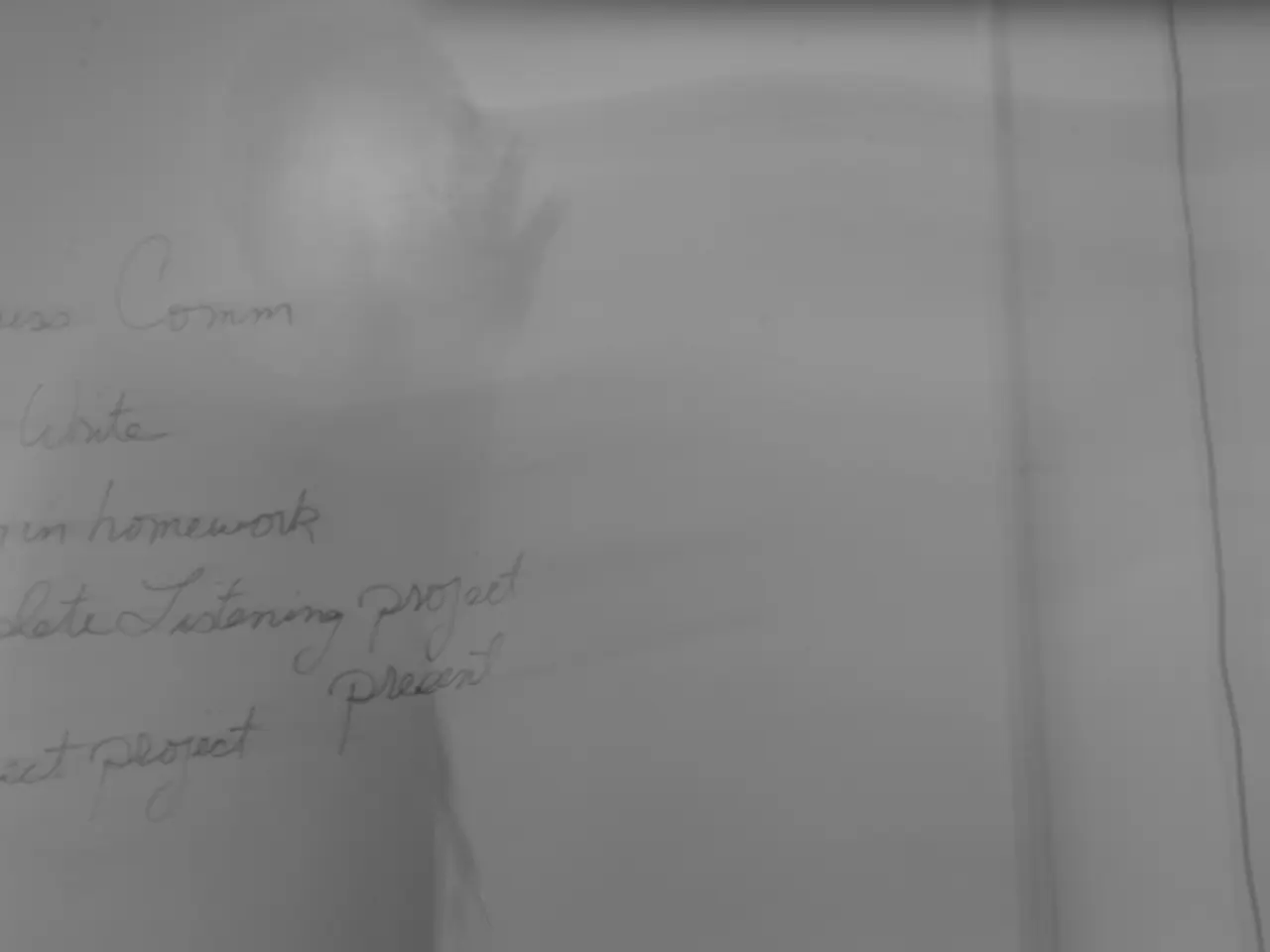Tennis stars from Belgium receive bans: Match-fixing fraudsters penalized for years due to sports betting manipulation
In a shocking turn of events, the International Tennis Integrity Agency (ITIA) has announced the bans of seven Belgian tennis players for match-fixing. The official press release, published on November 14, 2023, reveals that the players - Arnaud Graisse, Arthur de Greef, Julien Dubail, Romain Barbosa, Maxime Authom, Omar Salman, and Alec Witmeur - have been suspended from all professional tournaments until various dates in the coming years.
The mastermind of the syndicate, Grigor Sargsyan, received a five-year prison sentence in 2019 for his role in a global network that has been instigating professional tennis players to fix matches since 2018, with the aim of defrauding sports betting operators. The syndicate, reportedly involved in match-fixing with all the now-banned Belgian players, has been suspected of fixing thousands of matches worldwide.
The seven Belgian players, who were ranked outside the top 100 at their peak, were sanctioned for breaches of the anti-corruption rules. Alec Witmeur will serve the shortest ban, being suspended from all professional tournaments until December 26, 2023. He has already been provisionally suspended since May 2021, meaning he has already served most of his suspension. Arnaud Graisse, one of the banned players, will be absent from the sport for the longest period, with his ban expiring in October 2028.
Lower-ranked tennis professionals are more susceptible to match-fixing primarily due to financial pressures and lower earnings compared to higher-ranked players. Unlike top-ranked players who earn substantial prize money, sponsorships, and endorsements, lower-ranked players often struggle to cover basic expenses such as travel, coaching, and accommodation. This economic vulnerability creates incentives for them to engage in match-fixing as a way to supplement insufficient income.
Additional contributing factors include less media scrutiny and lower public profile for lower-ranked players, more frequent participation in lower-level tournaments with weaker anti-corruption controls, and the larger number of lower-ranked players, increasing the overall opportunity pool for match-fixers to target susceptible athletes.
Top-ranked players, conversely, benefit from stable, lucrative careers and stronger institutional safeguards; their prominence and consistent performance make match-fixing riskier and less advantageous for them.
The ITIA has stated that further proceedings against players linked to the Sargsyan network are ongoing outside of Belgium, indicating a commitment to continue combating match-fixing and sports betting fraud in tennis. If Arnaud Graisse decides to make a comeback after his ban, he would be one of the oldest players on tour at 38 years old.
In addition to the bans, fines in the five-figure range have also been imposed on the seven Belgian tennis players. The players have admitted their guilt. The ITIA's actions serve as a stark reminder of the importance of maintaining the integrity of sports and the need for continuous vigilance against match-fixing and sports betting fraud.
Online casinos in Germany could potentially see an increase in tennis-themed betting opportunities, given the recent match-fixing scandals implicating professional players. However, general-news outlets and crime-and-justice sections are more likely to focus on the sentencing of mastermind Grigor Sargsyan, who received a five-year prison sentence and was involved in the match-fixing scandal that affected tennis players globally. Post-ban, top-ranked tennis players might find themselves faced with tougher competition as lower-ranked players, who were more susceptible to match-fixing due to financial pressures, return to the sport.






